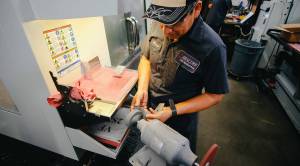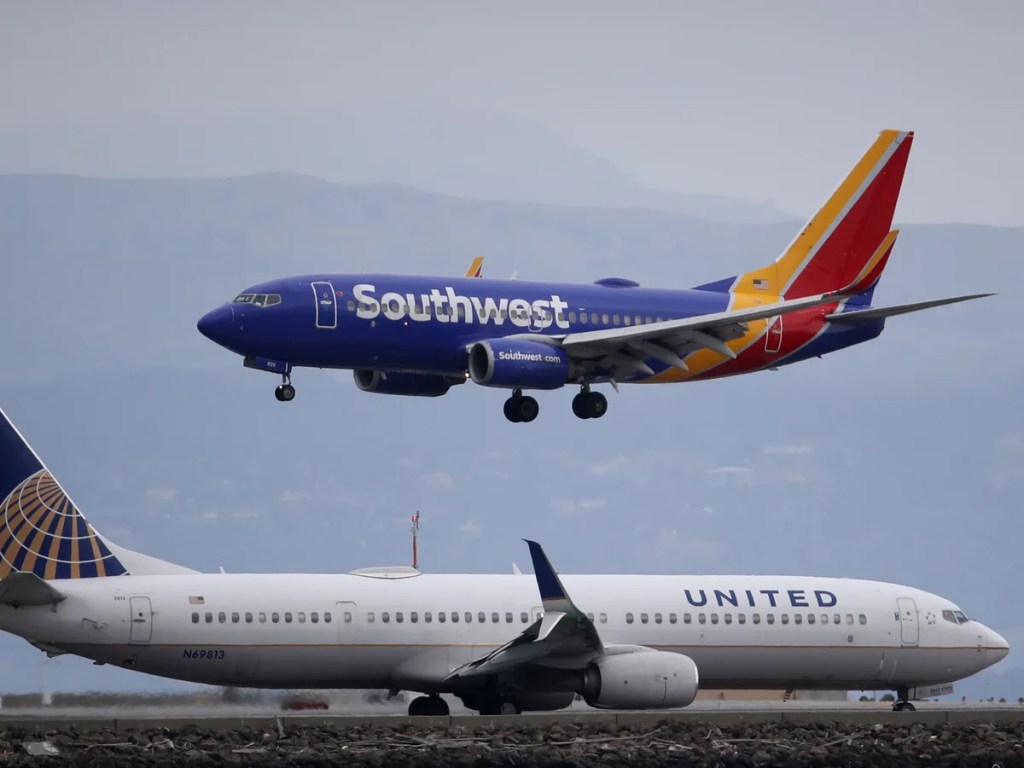Archive for the ‘Shortage’ Category
Link: https://www.npr.org/2022/04/25/1094706897/you-should-probably-get-your-plane-tickets-soon
The Indicator this week discusses what is happening in the airline industry. After hard hits from COVID-19 they are finally expecting to make profits this year, but there are many factors that could crush those expectations. Limited staffing and picketing from fatigued pilots and higher jet fuel prices due to the limited supply of oil are just some of the major problems facing these airline companies. Ticket prices will go up as consumers bear the brunt of the oil shortage. Airlines are also cutting different flight paths as there is not enough incentive to keep servicing certain routes. The biggest take away is to book your tickets early and be prepared for rising prices.
Original Air Date: April 25, 2022
Length: 10 minutes 17 seconds
Link: https://www.npr.org/2021/11/16/1056299014/of-boats-and-boxes
California Ports were not prepared for the consumer purchasing patterns shift from the pandemic. Instead of vacations, families were buying a new refrigerator or couch. This unpredictable increase in demand combined with the ports’ fragile system caused a supply chain issue that is still affecting America today.
Original Air Date: November 17, 2021
Length: 24 Minutes 55 Seconds
Link: https://www.npr.org/2021/10/20/1047777081/keep-calm-its-just-the-bullwhip-effect
As we already know, the whole world is struggling to get items shipped to distributors because of supply chain issues. The Beergame App, created by logistics expert Mathais Le Scaon, uses the demand of cases of beer to demonstrate the bullwhip effect, where small fluctuations in demand at the retail level cause increasing larger fluctuations up the supply chain. After participating in the game, members of tPlanet Money’s indicator team find that fixing the supply chain is no simple task.
Original Air Date: October 20, 2021
Length: 9 minutes 52 seconds
Link: https://www.npr.org/2021/05/14/996921658/blood-money
The United States provides two thirds of the world’s blood plasma and incentivizes donors with money each time they donate. The more they donate, the more money they receive which is something the World Health Organization and many other countries are against. When discussing the moral issues of paying donors, a doctor from Brazil argues that moral implications are the least of our worries when a shortage of blood plasma could be a death sentence for his patients.
Original Air Date: May 14, 2021
Length: 26 minutes 46 seconds
Link: https://www.npr.org/2021/03/12/976569019/chips-cars-and-the-baby-bust
In 2020, everyone, no matter their involvement with economics, knew what a shortage was. Toilet paper was gone from the shelves before it was even able to be stocked in stores. In 2021, there are some new shortages the U.S. is facing: microchips, cars, and babies. The Indicator discusses the causes of the limited supply of microchips which in turn is limiting car production, as well as the declining birth rate that the U.S. will face as a result of the pandemic.
Original Air Date: March 12, 2021
Length: 9 minutes 33 seconds
Link: https://www.npr.org/2020/03/31/824886286/episode-987-the-race-to-make-ventilators
In the wake of the Covid-19 crisis, the healthcare industry is experiencing a shortage of ventilators. Without increased production, hundreds of thousands of individuals will die. Now, companies that have little to no experience producing ventilators are beginning to help supply them.
Original Air Date: March 31, 2020
Length: 24 minutes 3 seconds
Discussion Prompt: In what ways does this policy align with economic thinking? In what ways is it ‘out of step’ with economic thinking? Is this the most efficient way to produce ventilators, at least for the time being? How can the government incentivize companies to stay open and help produce parts for ventilators during this time?
 Link: http://www.npr.org/2017/10/12/557444669/northern-california-wildfires-destroy-thousands-of-businesses
Link: http://www.npr.org/2017/10/12/557444669/northern-california-wildfires-destroy-thousands-of-businesses
Summary: There are many factors that can damage businesses, but not all businesses can say that mother nature is a leading factor in disrupting their operations. Winery businesses located in Sonoma and Napa counties are the main focus of this podcast, discussing how Northern California wildfires have made business owners realize just how detrimental they are to not only the future of their businesses, but to them and their employees as well.
Original Air Date: October 12, 2017
Length: 3 minutes 34 seconds
 Link: http://www.marketplace.org/2016/04/04/business/why-can-t-small-businesses-find-qualified-employees
Link: http://www.marketplace.org/2016/04/04/business/why-can-t-small-businesses-find-qualified-employees
Summary: Small businesses are struggling to find qualified workers to fill vacant positions, especially in the manufacturing sector. The vacancies in these positions are forcing businesses to consider new hiring approaches that come at a high price for owners.
Original Air Date: April 8, 2016
Length: Article
 Link: http://www.marketplace.org/2016/04/18/world/resource-curse/venezuela-ranchers
Link: http://www.marketplace.org/2016/04/18/world/resource-curse/venezuela-ranchers
Summary: Venezuela’s oil dependent economy imports nearly 80% of its food, which is particularly worrisome when oil prices are at an all time low.
Original Air Date: April 18, 2016
Length: 4 minutes 46 seconds

Link: http://www.marketplace.org/2016/03/28/world/happy-saudi-cows-eating-california-alfalfa
Summary: A Saudi dairy company, Almarai, bought a total of 14,000 acres of land across Arizona and California with the intentions of growing alfalfa, a water intensive crop. Almarai plans to export the U.S. grown alfalfa back to Saudi Arabia to be used as fodder.
Original Air Date: April 6, 2016
Length: 2 minutes 22 seconds






 Link:
Link: 

